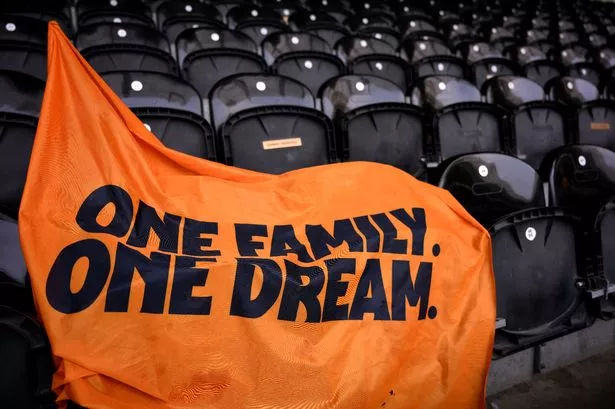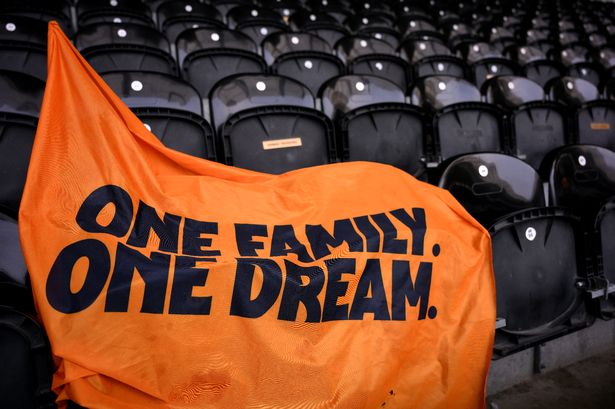
The Tigers continue to be sat on the EFL’s naughty step and will do for a while yet
It’s not been a summer that Hull City will look back on with any degree of fondness when it comes to their dealings with the EFL and how that impacts them going forward, coupled with the management of their finances being dragged through the public domain.
The publication of the judgement by the EFL into City’s problems this week highlights a series of issues relating to the loan deal, which saw Louie Barry arrive at the MKM Stadium from Aston Villa in January on wages in the region of £35,000 per week.
In a nutshell, City did not pay the loan fee or Barry’s wages for a lengthy period, and that formed the basis of the case brought against them by the EFL – those monies have all since been paid. The EFL rejected a flurry of emails between the Tigers and Villa, which the club said put them in the clear. That, some feel, could have been overlooked by the EFL had they taken a more lenient approach.
And in the appeal hearing, City were unable to justify their reasoning enough for not paying Villa the money owed against Barry’s move to the club by a certain time, and their already extreme punishment was reduced from three windows down to two. Again, they argue there were reasons for this, which the three-person panel disputed.
The club hoped it would be reduced to one window or scrapped altogether, though in truth, even the most optimistic in Acun Ilicali’s inner circle would have been surprised by that outcome.
Though the word of warning there is that if City notch up seven days of late payments before the beginning of July next year, they’ll be back to square one and won’t be able to spend next summer.
In essence, after years of big spending on some good players, but also some dross, this has forced the club to be more pragmatic when it comes to their transfer dealings.
Last summer, about £30m was splashed on the likes of Mohamed Belloumi, Charlie Hughes, Ryan Giles, Liam Millar, Abu Kamara and Mason Burstow, while another bucket load was spent in January. The club also hauled in well over £30m for Jacob Greaves and Jaden Philogene.
At the heart of this issue are the financial issues, which have a major impact on the day-to-day running of the club. Acun Ilicali has gone on record as saying the club does not have financial problems, though admitting there was too much money being spent. Many would look at £35k per week on Louie Barry and suggest, well, it’s no great surprise. Barry amassed just 165 minutes of action across the four appearances before he picked up a knee injury in the win away at Sunderland in February. His loan move was an unmitigated disaster and has now caused them far more harm than good. Metaphorically and financially.
Under Ilicali, City have never been found wanting when it comes to ambition. Jean Michael Seri, Liam Delap, Jaden Philogene, Tyler Morton, Fabio Carvalho, Ryan Giles et all. The list is endless. More than 60 players have arrived since Ilicali’s January 2022 takeover, and that tells it’s own story.
That’s astonishing. And expensive. Signing on fees, transfer fees, loan fees, agent fees, etc, have left the club losing around £500,000 per week. Completely ‘normal’ in the Championship. Ilicali’s desire to spend in a bid to get City into the Premier League has been admirable, but the approach has not worked.
Now there needs to be a more measured approach. City do not bring in enough income to sustain that level of spending, and by his own admission, Ilicali is ‘not the wealthiest owner’, so something has to give.
This punishment is not a good thing, but it can be used as a vehicle for change. Ilicali needs to have a stronger grasp on what’s going on with the club’s accounts. If he’s employed people at the top to manage the club’s finances, then between them, they need to ensure there’s enough money in the bank to make payments, whether that’s to other clubs, HMRC or the local cleaning company.
Call it a wrap across the knuckles, shot across the bow or whatever, City have been punished by the EFL for what they believe has been financial mis-management, and it will hurt them on the pitch, especially if that third window gets activated which is a major concern.
City can probably fudge their way through this season with the quality of their recruitment, but being unable to spend in 12 months’ time would be a catastrophe in many ways, especially as key players would be sold and could not be replaced with fresh investment.
Player trading is key to the health and growth of any club, especially one in City’s position, so being banned from doing that next summer would leave them at a real disadvantage. It’s crucial they get their house in order now. This warning has to be heeded.
Yes, the EFL could have been more lenient. There are those who say they did the right thing. City feel that they’ve been treated unfairly and that the issues with Villa could have been resolved without the need for such action, but rules are rules. The EFL has come down heavy on City, and they must now take it on the chin, learn from it, and make sure they’re whiter than white from now on.
There has to be an element of contrition from those at the top of club about how this situation happened, how they’re learning from it and ensuring they will not allow it to happen again.
You can also join our City WhatsApp community and get the latest news from the MKM Stadium straight to your mobile device. Click here to sign up. If you don’t like our community, you can check out any time you like. If you’re curious, you can read our Privacy Notice.




